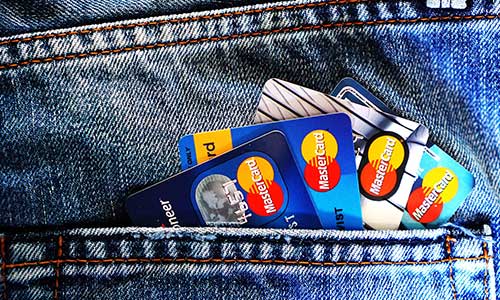When applying for a mortgage and gathering home loan information you will need to understand how debt can affect your ability to have home buying power.
There are a lot of rules and best practices out there when buying a home. Let’s discuss how debt actually affects home buyers and their property purchasing power.
Debt-to-Income Ratios Factors for Mortgages
Your Debt-to-Income (DTI) ratio is a big factor that lenders consider when considering you for a new mortgage. What is a debt-to-income ratio?
When you apply for credit, lenders calculate your debt to income ratio, or DTI, in order to determine how risky it may be for you to add another payment, such as a new mortgage payment. It is another tool to assess your financial health, along with your credit score.
Simply put, the debt-to-income ratio compares how much you owe every month to how much you earn. Specifically, it is a percentage representing how much of your gross income is used monthly to pay bills like rent, mortgages, credit cards, and other debts.
How to Calculate Your DTI Ratio
Here is how you can find your debt-to-income ratio in 2 simple steps.
Step #1: Add Up Monthly Bills
To calculate your debt-to-income ratio add up your monthly bills which may include:
- Monthly rent or house payment
- Monthly alimony or child support payments
- Student, auto, and other monthly loan payments
- Credit card monthly payments (use the minimum payment)
- Other debts
Also Note: Expenses like groceries, utilities, gas, and your taxes generally are not included.
Step #2: Divide the Total by Monthly Income
Divide the total by your gross monthly income, which is your income before taxes.
The result is your DTI, which will be in the form of a percentage.
What Debt-to-Income Ratio Percentages Mean
The lower the debt-to-income ratio percentages mean you are a less risky borrower to lenders.
Generally, a DTI of 35% or lower indicates a healthy debt management level. After you pay all of your current bills, you likely have enough left to make a reasonable mortgage payment.
A DTI of 35%-49% shows adequate financial management, but you may want to get this number lower in order to be in a better position to handle unforeseen expenses and to be considered for a new loan. In this range, a lender will probably ask for additional eligibility criteria.
50% or more DTI ratio means you don’t have much left to spend after bills and lenders will limit your borrowing options.
Good Debt & Bad Debt
Some people think any money owed is bad while others think money owed for certain purposes is ok if the interest rate and monthly payments are manageable or within their budget. Think of these as investments in your future.
Is there such a thing as good debt or bad debt? The answer depends on your personal approach to money management.
Good Debt Doesn’t Affect Your Credit
The main difference between good debt and bad debt is good debt does not affect your credit score.
Some examples of what may be considered Good Debt include:
- Student Debt/ Education Loans
- Medical Bills
- Rent or house mortgage
- Auto loan
- Small Business debt
Bad Debt Will Cost You… A Lot
Bad debts, on the other hand, do not contribute to your future. Bad debt will cost you more than they’re worth and do not finance life better.
Bad Debts can include:
- Credit Cards
- High-interest loans
- Borrowing to Invest
- Personal loans
When is Debt Helpful?
Although the idea of debt may have a negative connotation, it’s not all bad and you’re better to have some debt on your credit report than none.
Debt gives you the opportunity to show good payment history and smart financial management. So how do you know which debts are actually “helpful?”
Types of Debt
There are 3 types of debt:
- Revolving debt, such as credit cards, give you a line of credit on which you can borrow and make payments on a set schedule. Lenders like to see less than 30% utilization of these lines of credit. For example, you may be approved to spend up to $6,000 on your credit card, however, a lender will want to see less than $1800 of that as your owed balance. (note: different lenders and programs may require a different percentage of utilization)
- Installment debt, like a mortgage, loans you a large sum of money upfront and you make regular payments to pay down the balance.
- Open Debt is not something most people have. An example is a charge card which requires no collateral but requires you to pay off each month or pay very high penalties. Not a good choice as they also come with high annual fees.
Credit Diversity Mix
Having a mix of account types shows lenders that you can be responsible with payments. However, don’t go out and open up different types of loans just for the sake of diversifying your credit before buying a home.
Your credit diversity mix plays a small part in your overall credit review. More important is the credit utilization ratio which is best to keep under 30% as aforementioned.
If possible, it is a good idea to pay off or pay down debt prior to purchasing a home. This will simultaneously improve your debt-to-income ratio and raise your credit score – the two biggest factors in qualifying for a mortgage.


